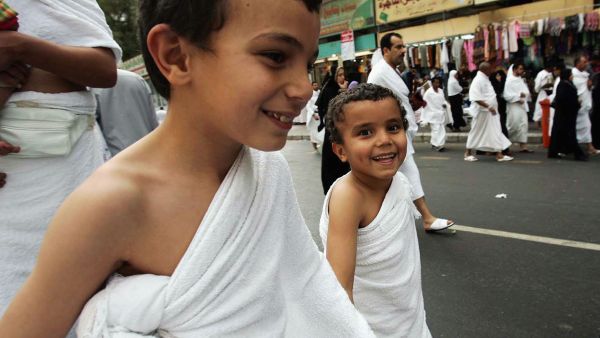There has been much talk in the UAE on the importance of preparing today's schoolchildren to be better equipped professionals tomorrow. Exhibitions and seminars are being held with professionals invited from various countries to offer their expertise.
It seems that the government is sparing no effort in ensuring quality education for its citizens. Collaboration with renowned international institutes of learning and emphasis by the Ministry of Education on teacher training and development are elements the government is pursuing in the quest for literacy.
But preparing a child today towards a complete individual tomorrow takes more than the actions of a dedicated government. Literacy rates in the 90s means nothing when dealing with ineptly prepared graduates. In Saudi Arabia, one of the common complaints is that Saudi youth are ill-prepared for the workplace. Much has been written or raised in public about the inadequacy and lack of enterprise of this generation.
I suppose one reason for such criticism had been the sub-standard status of education in the past that most of these children had to endure, with very little emphasis on the sciences and the arts. Teachers spoke and the children listened; nothing else and no classroom interaction ever! It may have worked in the past, but in today's dynamic world, such methods do not encourage participation.
It has only been in recent years that changes in the curriculum have added some encouraging flavour to the teachings. That hasn't however abated the worries of some parents who bemoan the trend of robotic behaviour in speech and thought process and the issue of free thinking among their young. The lack of imagination and initiative, qualities that seem to stand out when describing today's youth, must be considered with great thought. And in that so much of this behaviour is perceived negatively is a source of concern for them.
Positive upbringing
This society, similar to others in the GCC, has undergone so much transformation in the past three decades following the oil boom, some for the better and some for the worse, and now it looks to its emerging youth with a question foremost on its mind; where had we gone wrong?
As parents, the bulk of responsibility for the behaviour of our youth must rest squarely on our shoulders. No government laws or exhibitions and seminars can be designed to enforce the kind of upbringing that breeds positive results alone. Parents play a major role in this developing effort.
And parents are often at fault. A key element in building the character of a confident individual is to foster the right to ask and question why. Aside from neglect or preoccupation in other matters, here too parents have failed their children. It may be expedient to blame the educational system for such faults. And God knows there had been many faults there to be examined and questioned. But such trends are often born at home.
It starts with not encouraging the freethinking spirit in your child. Instead, what actually takes place is the drumming of total submission to any perceived authority from a very young age; a submission that may be right or wrong. While respect for elders and the learned is a fine quality, it should not be cast in concrete.
For elders, just like our youth, could be misguided. They could have undefined agendas that may not translate into a positive source of inspiration for young minds. If the behaviour today of our young is any indicator of our shortcomings, quite a few of them may have fallen into such a trap.
Perhaps parents have allowed others to do the thinking for them and are victims in this dilemma themselves. But to deny their children the right to question, the right to ask, and the right to challenge what they perceive is wrong will not yield changes for the better. And in the energy of present-day earth, we must learn to swim on our own and quickly or we shall drown.
Let us not suppress these young minds with holier-than-thou lectures, or sermons from the Stone Age. Let us deal with them in real time and discuss with them real issues. Educate them to live as citizens of this planet, to wonder and question all they see; to go beyond our borders and seek knowledge wherever it may be, and to accept that as earth's citizens, we are similar yet different, and that none is to be blindly judged as better than the other. And, finally, that such differences between us as a people of this earth are not life-threatening.
It is when we shower them with such support that they will learn to define their positive roles. A freethinking society does not start from nowhere. It must be nurtured and encouraged at a tender age. That is the challenge, and not for the educators. Authoritarian rules in the upbringing of children have no place at home.
Tariq A. Al Maeena is a Saudi socio-political commentator. He lives in Jeddah, Saudi Arabia.








